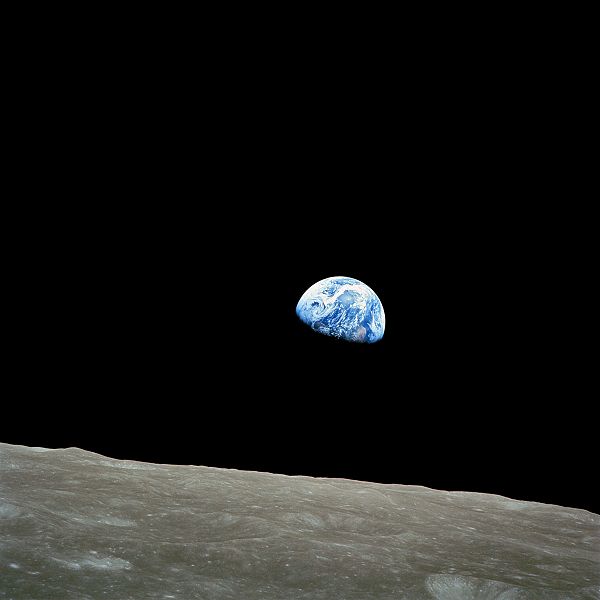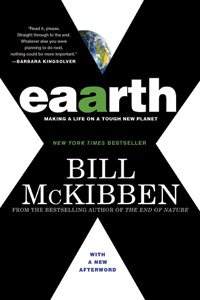It’s that time of year when our local, weekly farmers’ market moves indoors and, obviously, the product changes. These markets really are a summertime thing. I’ll be sad to see the empty parking lot on Saturdays outside the middle school where the market used to be.
My wife, Lisa, who is often a few years ahead of me in all things Cool & Progressive, was an early adopter. She valued local foods, loved our farmers’ market, and loathed to miss it. And I was like, “Okay, sure, I’ll tag along.” All cynical and whatever. But I learned over time that I enjoyed being there, running into folks, seeing my neighbors, goofing around, buying things . . . or not.
In a passage from his devastating, essential, must-read book, Eaarth: Making a Life on a Tough New Planet, Bill McKibben helped clarify for me what it was that I was experiencing at these markets, and maybe why I liked going so much:
Often a farmers’ market is the catalyst — not just because people find that they like local produce, but because they actually meet each other again. This is not sentiment talking; this is data. A team of sociologists recently followed shoppers around supermarkets and then farmers’ markets. You know the drill at the Stop’n’Shop: you come in the automatic door, fall into a light fluorescent trance, visit the stations of the cross around the perimeter of the store, exit after a discussion of credit or debit, paper or plastic. But that’s not what happens at farmers’ markets. On average, the sociologists found, people were having ten times as many conversations per visit. They were starting to rebuild the withered network that we call a community. So it shouldn’t surprise us that farmers’ markets are the fastest-growing part of our food economy; they are simply the way that humans have always shopped, acquiring gossip and good cheer along with calories.
Of course, McKibben has bigger things on his mind, and rightfully so. He recognizes this local, strengthening network as a catalyst, a foundation for political expression & action, for coordinated effort, and, yes, justice. In short, when people get together, it’s a good thing. So I want to thank all those folks who have worked so hard to bring the market to my little ‘burb in Delmar, NY, and the thousands like them around the country. You done good.









